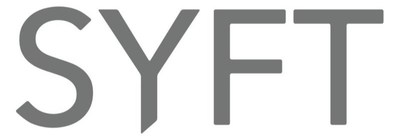New Survey on Hospital Supply Chains Reveals Most are Not Prepared for Another Pandemic

TAMPA, Fla., Nov. 3, 2021 /PRNewswire/ — A new survey finds that 98% of hospital leaders say the pandemic exposed significant supply chain vulnerabilities in their hospitals, yet nearly two-thirds (62%) believe their organizations are not doing enough to address these challenges and fortify against future supply chain disruptions. The survey findings appear in a newly released market report from Syft,®a leading provider of AI-enhanced inventory control and end-to-end hospital supply chain management software and services.
Syft commissioned Sage Growth Partners, a healthcare consultancy, to conduct the survey of 100 hospital and supply chain leaders between August 15 and August 25, 2021. The respondents hailed from short-term acute care hospitals, children’s hospitals, long-term acute care hospitals and specialty hospitals.
“Since the COVID-19 pandemic hit, some hospitals have taken steps to re-supply stockpiles and address problems such as unreliable suppliers,” said Todd Plesko, CEO of Syft. “However, our research reveals that most hospitals haven’t yet moved beyond these basic strategies to implement lasting changes that will fortify the supply chain, such as improving real-time visibility into supplies and implementing AI and demand forecasting tools. This raises alarming questions regarding ongoing supply chain vulnerabilities that could drastically impact patient safety and staff retention moving forward.”
Key survey findings include:
- While 93% of those surveyed say their organizations have taken “some steps” to address vulnerabilities, 62% say their organization should be doing more to fortify against future supply chain disruptions.
- Sharp increases in nurse burnout have been well-documented during the pandemic, but the survey reveals just how large of a role supply chain problems are playing in burnout and retention. Forty-three percent of hospital leaders say their organizations have lost nurses specifically due to pandemic-related supply chain problems.
- Despite the vulnerabilities revealed by the pandemic, as well as the impact supply chain problems have on nurses, improving the supply chain is still not a high priority for many hospitals. In fact, only 51% of hospital executives said it is a high priority. Hospital executives are underestimating the scope of supply chain problems within their own organizations. Nearly 80% of C-suite executives who took part in the survey said their supply chains perform extremely or very well, while only 64% of supply chain managers rated theirs that highly.
In addition to the key findings above, the report also provides Syft’s top recommendations to better enable hospitals to respond to emerging challenges. Recommendations include:
- Align priorities between the C-suite and supply chain managers by giving visibility into performance across the organization, as well as providing them with real-time data analytics capabilities.
- Gain buy-in from C-suite leadership by socializing the supply chain’s impact on revenue and staff morale.
- Ready a response to new virus variants with an AI-enabled supply chain platform to gauge inventory, engage in procedural demand forecasting, and assess procedural cost variances.
- Embrace the Clinically Integrated Supply Chain Outcomes Model (CISOM) introduced by HIMSS to assess at what stage of supply chain optimization a hospital operates currently and how to plan for improvements.
“Supply chain challenges are impacting virtually all areas of the hospital industry. This new market research shows that it is more important than ever for organizations to adopt new solutions that automate processes and provide enhanced visibility of inventory consumption and waste,” said Dan D’Orazio, CEO, Sage Growth Partners. “The COVID-19 pandemic has been a wake-up call for healthcare. Supply chain optimization, automation, and predictive analytic tools are crucial. Organizations that successfully implement these solutions will continually strengthen patient care and staff retention.”
The complete market report is currently available for download from the Syft website.
About Syft. Syft® enables enterprise-wide inventory management through a powerful combination of services, automation tools, and real-time data analytics. The comprehensive Syft Synergy® platform eliminates the need for multiple point solutions and facilitates immediate supply savings with a range of capabilities including master data management, inventory services, supply chain management software, analytics, and advanced reporting. Founded in 1999, Syft is used by more than 245 customers (970 U.S. hospitals) to control costs, processes, and productivity across the entire organization. For more information, visit Syft at www.syftco.com.
About Sage Growth Partners. Sage Growth Partners accelerates commercial success for B2B, B2B2C, and B2C healthcare organizations through a singular focus on growth. The company helps its clients thrive amid the complexities of a rapidly changing marketplace with deep domain expertise and an integrated application of research, strategy, and marketing. Founded in 2005, Sage Growth Partners is located in Baltimore, MD, and serves clients such as Pyx Health, ProgenyHealth, the National Minority Health Association, Philips Healthcare, U.S. Renal Care, Quest Diagnostics, Livongo, Olive, and iN2L.
For More Information
John Gonda
616-309-4888
jgonda@sage-growth.com
View original content to download multimedia:https://www.prnewswire.com/news-releases/new-survey-on-hospital-supply-chains-reveals-most-are-not-prepared-for-another-pandemic-301414159.html
SOURCE Syft
